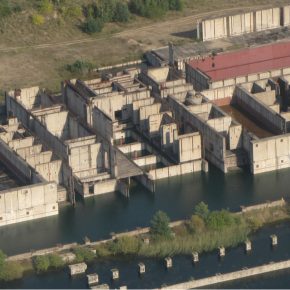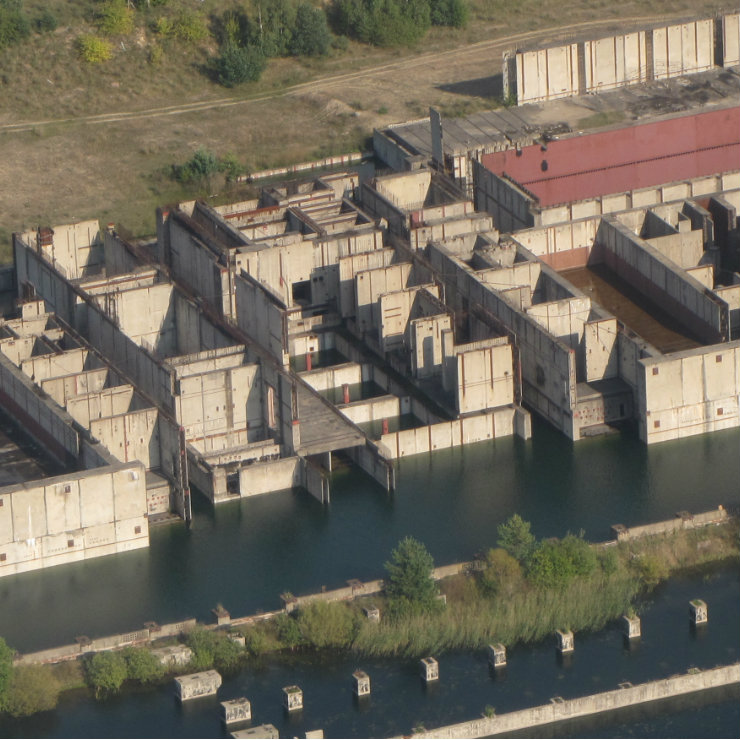Tydzień w gospodarce
Category: Trendy gospodarcze

Unfinished Żarnowiec nuclear plant (mapio.net, CC BY-SA)
Poland, which uses coal to generate most of its electricity, plans to lower the share of coal in its energy production to 60 per cent in 2030 and around 50 per cent in 2050. „Our energy security is and will be in the long perspective based on coal (…) Here the revolution is impossible, but we are ensuring evolutionary change,” Mr. Tchórzewski told an industry Powerpoll conference.
According to the basic principles of a new “Energy policy for Poland” 50 per cent of energy will be still coal based, 20 per cent from renewable resources and 20 per cent from nuclear power in the years 2040-2050.
It remains unclear, however, what could replace coal in Poland in the coming decades. Mr. Tchórzewski is a supporter of a nuclear power plant, but for the project to take off, a government decision is necessary. Poland’s state-owned PGE, the country’s biggest power producer, has been responsible for the project. The decision was expected to be taken last year, but as works on the financing of the nuclear power plant continue, there is a delay. „I think that in the nearest future there will be an answer to the challenge, which I consider indispensable – whether or not the construction of nuclear power plant units will start,” Mr. Tchórzewski said. „These are the decisions to be taken this year, definitely in the first half of it,” he added.
China General Nuclear Power Group (CGN) said in July 2017 it was in talks to build Poland’s first nuclear power plant. The two countries signed a memorandum on nuclear cooperation for civil use. The state-owned company is working on a project in Britain, having signed the GBP18bn Hinkley Point C power plant agreement in September 2016 with French energy firm EDF and the British government.
The Polish government plans to build two nuclear power plants with a total capacity of six million kilowatts, the statement noted. Companies including France’s Areva and EDF, the US’ Westinghouse and Canada’s SNC-Lavalin Nuclear are also eyeing to take part in the race, according to Polish media.
The project, which is expected to cost between USD10-15bn, was first reawakened in 2009 driven by now EU Commission head Donald Tusk, then PM in Poland, as part of looking for alternatives to coal-fired power, which still makes up 90 per cent of domestic production. It was subsequently delayed as falling power prices weakened its economic case and Japan’s 2011 Fukushima nuclear accident hit public support.
Poland discontinued building a nuclear plant in 1990, very soon after the end of the communist system. In the 1980s Poland had four Soviet VVER-440 reactors under construction at the unfinished Żarnowiec Nuclear Power Plant in northern Poland, one of the sites being examined for a future plant. The Chernobyl disaster in 1986, and the desire to escape Russia’s claws killed that project.
Some years later a new nuclear power plant was approved in the 2005–2025 energy strategy document. It was expected to be in operation by 2021 or 2022, again at Żarnowiec, or another location (Choczewo) in the same region on the Baltic sea.
The project’s official deadlines were to have the first unit operating by 2025, a delay from the original plan to be up and running by 2020 and to complete the plant by 2035.
A 2006 feasibility study had suggested building an 11.5 GWe capacity nuclear power plant, but the previous government decided to build a 4.5 GWe nuclear power plant by 2030. In 2007, a draft energy policy proposed a 10 GWe nuclear capacity by 2030 that would provide 10 per cent of Poland’s electricity production. The deadline would give an estimated ten years for investment and construction and five years of public campaigning.
Three Polish state-run companies, copper miner KGHM and utilities Tauron and Enea, agreed to buy 10 per cent each in PGE EJ1, the PGE-owned unit designated the task of overseeing and implementing the plan.
The Baltic Sea resort of Mielno is one of three sites that were selected, but in February 2012 residents voted against the plan, with 94 per cent of the 2,389 people who took part in a referendum opposing the plant and only 5 per cent supporting it. In the latest opinion poll done by Poland’s Ministry of Energy in February 2018, 59 per cent of Poles support the construction of a nuclear power plant.

